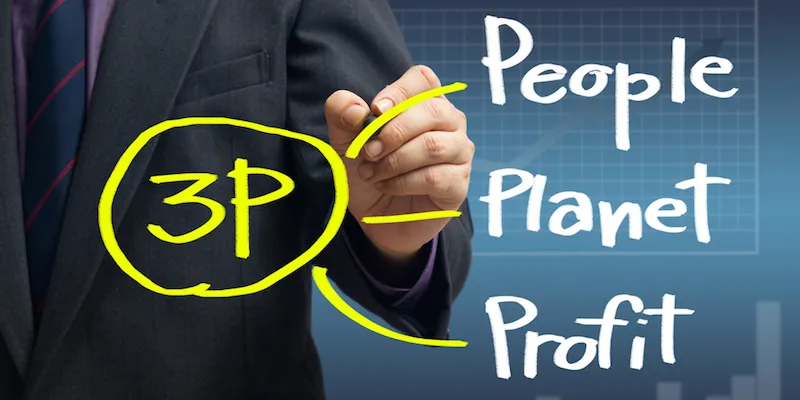Social Enterprise and the Imperative Third Bottom Line
The increasingly pressing reality in social enterprise is that no matter what specific sector a business operates in, its long-term success depends largely on the outcomes of climate change. While the precise nature of these outcomes may remain a topic of debate, the overwhelming consensus is that they will impact the world’s poorest and most vulnerable most dramatically. Food and water shortages, displacement, and devastation due to increasingly volatile natural disasters are among those most likely to hit the world’s poor with accelerated frequency and magnitude in the coming decades.
With most of these already showing signs of presence, social entrepreneurs might find it prudent to consider how they will affect their own long-term impact. Yet how many are actually doing this?
The third bottom line
Most of us know about those who have taken the ambitious step towards adopting a “triple bottom line,” committing their businesses to environmentally sustainable practices in addition to their social mission. This movement of business managers and entrepreneurs recognizing the triple bottom line approach as a feasible business strategy is an important one. Yet designating companies as either double or triple bottom line presents a certain problem with how we think about social business: it holds social and environmental missions distinct from one another when, in fact, they are integrally connected.
The result is that some companies rationalize environmentally dirty or wasteful business operations on the grounds of maintaining their level of social impact, while neglecting the ways that environmental degradation actually impedes that very social mission in the long term. By recognizing the two “bottom lines” as one and the same, on the other hand, social entrepreneurs have an immense opportunity to simultaneously achieve long-term and sustainable social impact as well as protect their businesses financially through economically sustainable investments.

The way forward
As an initial step, every entrepreneur with a social mission tied into the operations of his or her company should adopt an explicit mission to make that company completely green. This should increasingly be considered a key aspect of being “social,” and should be adopted as a policy and central talking point by networks of social enterprises. Impact investors should support this movement by making concrete steps toward environmental sustainability a condition of funding. Fellowships and incubators should not only consider a commitment to environmental sustainability a criterion for support, but also work with participants to develop best practices in incorporating environmental sustainability into business operations.
The success depends in a large way on the wide scale and unanimous adoption of these practices by social enterprises and the organizations and institutions that support them. Doing so will not only level the playing field from a business perspective, but will create networks for collaboration, resource sharing, and sharing of best practices, which will ensure a rapid and efficient transition and minimize the short term costs on the business itself.
The opportunity is far from unrealistic. Much of the technology needed to make it happen already exists and is becoming increasingly affordable and accessible. However, there is still room for innovation, and thus a commitment to environmental sustainability will mean only a start to maximizing the potential for efficiency and long-term financial advantages.
Sustainability for impact
Many large corporations are already realizing that environmental sustainability is the only way forward. Small businesses should learn from this, and adapt quickly. By committing to this the social enterprise community has the opportunity to serve as a prototypical model for other industries and to demonstrate the success of a unified business community run on environmentally sustainable practices. The potential for impact is immense.
There exist visionaries who foresee a global economy dominated by startups and SMEs, defined by a democratization of business through low barriers to entry for entrepreneurs, energy independence and complete environmental sustainability. However idealistic the vision may seem, in reality we already possess the means of achieving it. Investment is coming from the top. What is required now is wide scale commitment at the grassroots level, beginning with individuals, entrepreneurs and small businesses. If only for the sake of impact, social enterprises from all sectors should not hesitate in taking a leading role in this commitment.







